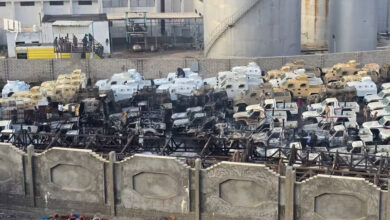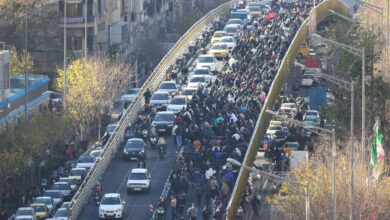
Saudi King Salman will not attend a summit hosted by President Barack Obama next week seeking to shore up wavering trust from Gulf leaders while Washington negotiates with long-time rival Iran.
A statement by Saudi Arabia’s embassy in Washington said Sunday that newly-named Crown Prince Mohammed bin Nayef would lead the Saudi delegation to the summit.
The king’s son, Deputy Crown Prince Mohammed bin Salman, will also attend.
Salman was expected to attend the summit and Washington learned of the change of plans late Friday, administration officials said, insisting that the change was not a slight.
Six Gulf Cooperation Council leaders are due to visit the White House on Wednesday and attend the summit at the bucolic Camp David presidential retreat the next day.
Washington and the Gulf nations will discuss conflicts across the Middle East including in Iraq, Libya, Syria and Yemen, a senior administration official said.
The United States is keen to allay Gulf fears that the country is disengaging from the region and tone down anxiety over closed-door nuclear talks with arch-foe Iran.
“This is also an opportunity to reaffirm the US strategic partnership with the Gulf States, our shared concern about Iran’s destabilizing activities in the region and our mutual commitment to take steps necessary to enhance stability in the Gulf and de-escalate tensions,” the official said.
A partially complete nuclear accord with Tehran has some Gulf diplomats voicing fears in private that Washington is bargaining with Iran at their countries’ expense.
The diplomats have also said they are uneasy about what seems to be Iran’s growing influence in the region.
Saudi Foreign Minister Adel al-Jubeir said Salman would miss the meeting “due to the timing of the summit, the scheduled humanitarian ceasefire in Yemen and the opening of the King Salman Center for Humanitarian Aid,” according to the embassy statement.
Jubeir “reiterated King Salman’s commitment to achieving peace and security in Yemen and his eagerness to the speedy delivery of humanitarian aid to the brotherly people of Yemen,” it added.
US Secretary of State Kohn Kerry met with Gulf foreign ministers last week in Paris to prepare for the summit that is slated to include leaders from Bahrain, Kuwait, Oman, Qatar, Saudi Arabia and the United Arab Emirates.
The summit was described by one diplomat as “long overdue.”
Yemen in chaos
The Obama administration has pressed Saudi Arabia to ease an imprecise air campaign on Yemen that appears to have had a limited impact on the ground.
After more than six weeks of Saudi-led air strikes, Yemeni rebels said they would respond “positively” to ceasefire efforts and their allies accepted a US-backed truce plan.
Riyadh has offered a five-day humanitarian truce from 2000 GMT Tuesday. The country said its ceasefire offer is conditional on the rebels reciprocating and not exploiting it for military advantage.
Salman said the Saudi-led air war was launched on Yemen to foil a plot by a “sectarian group” to undermine Middle East security. He said the campaign prevented Yemen from becoming a “theater of terrorism.”
Saudi artillery responded to rocket fire from Yemen that wounded four women inside the country Sunday.
More than 1,400 people have been killed since late March in the conflict, according to the United Nations.
Aid agencies have called for an immediate ceasefire in a statement signed by 17 organizations.




